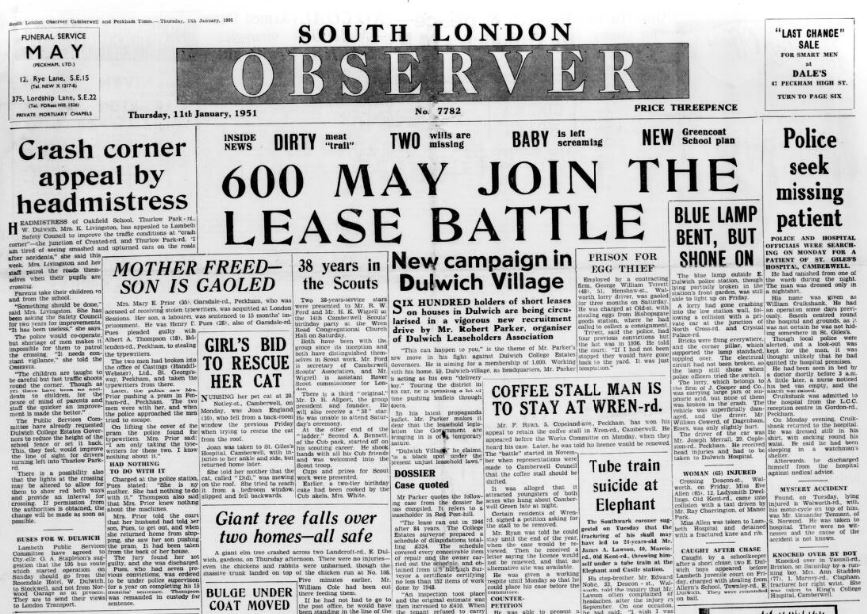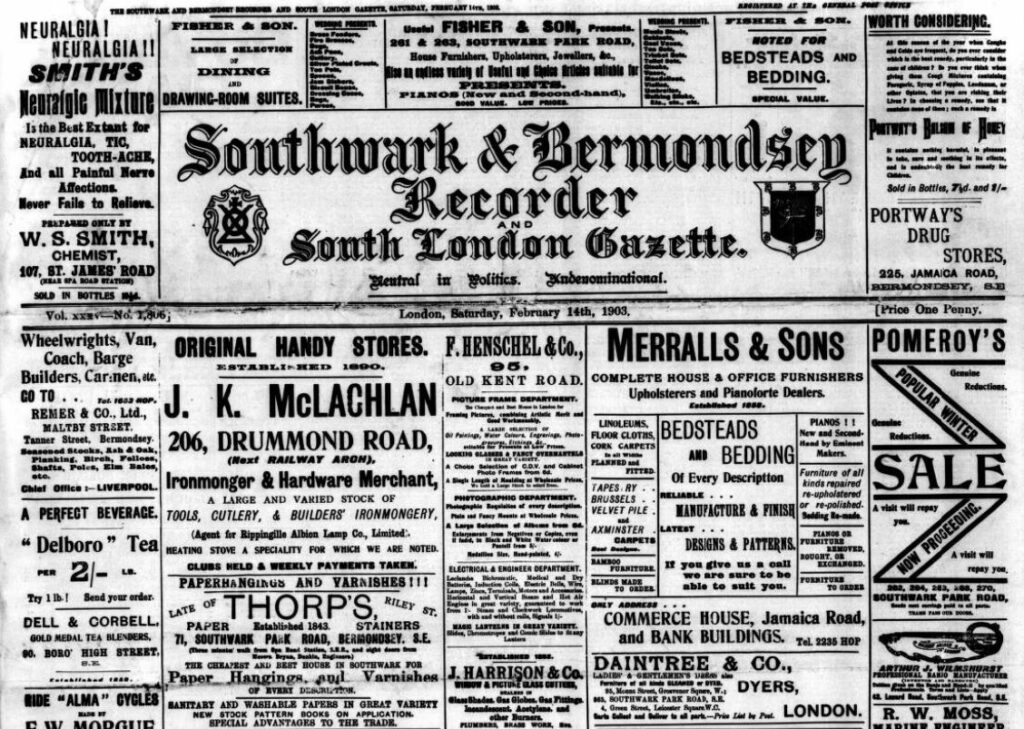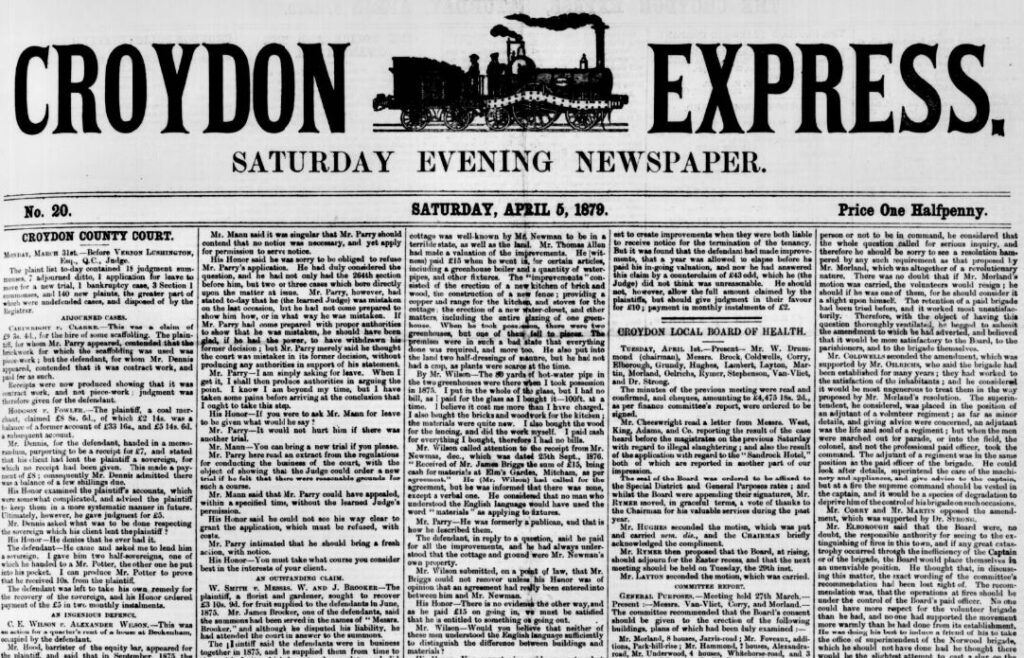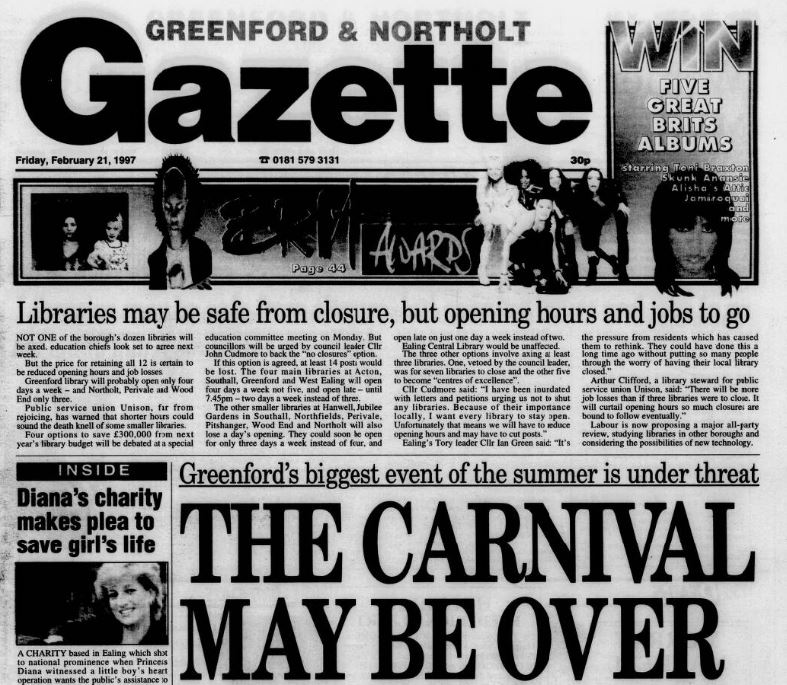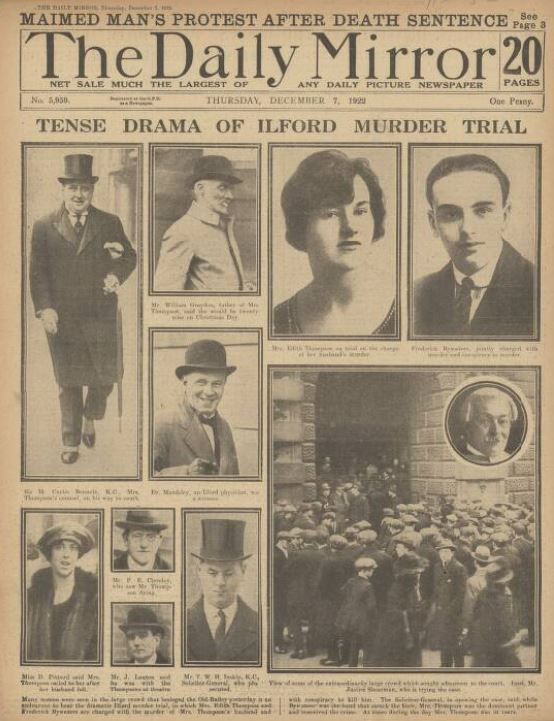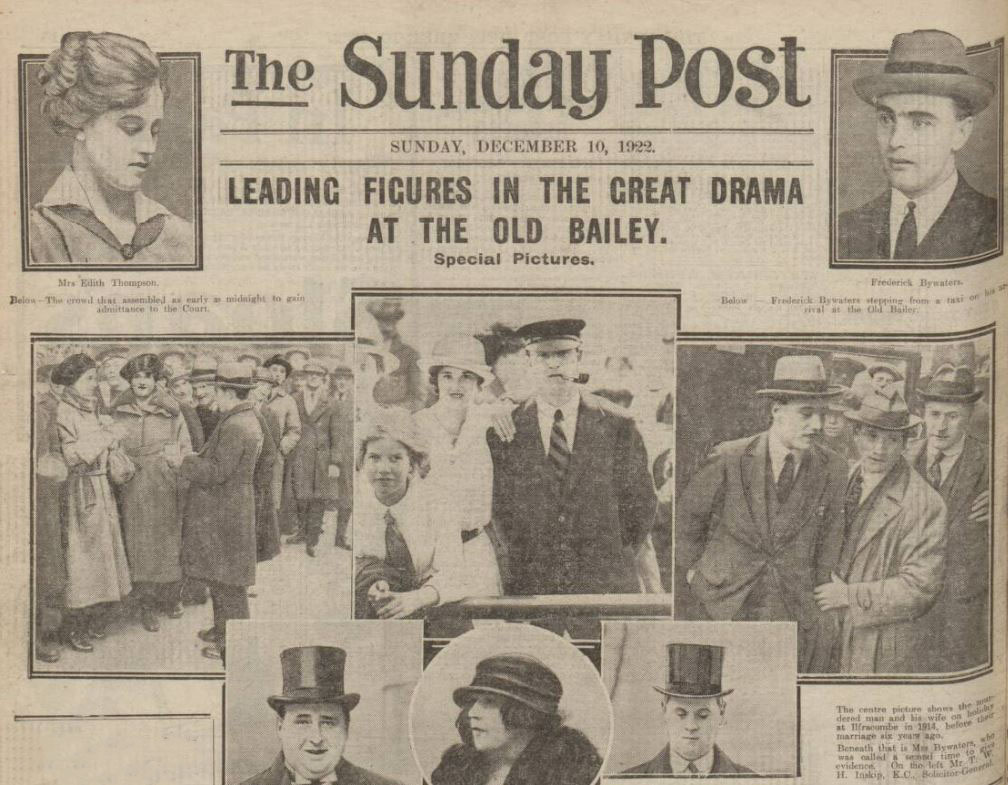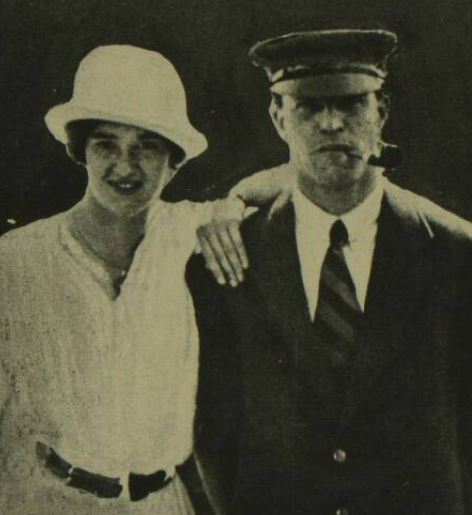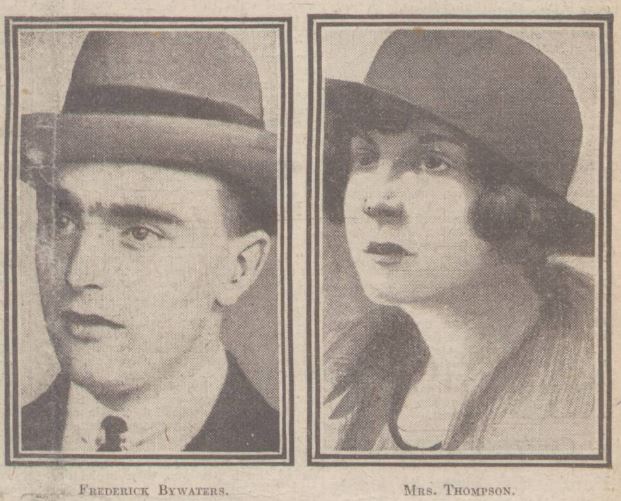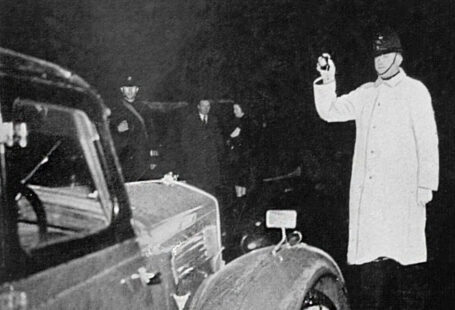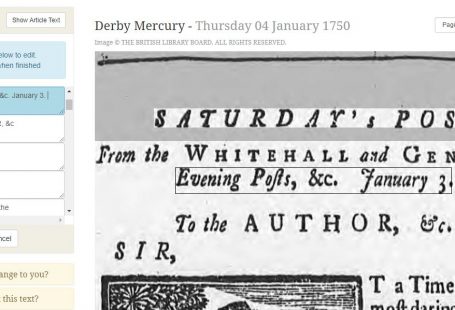This week at The Archive we have a South London special for you, with three brand new newspaper titles joining us from the likes of Croydon and Southwark. Meanwhile, we’ve added 360,986 brand new pages in total to our collection over the past seven days, with five brand new titles being welcomed to The Archive in all.
We’ve not neglected our existing newspaper titles either. From Gloucester to Grimsby, from Plymouth to Port Talbot, from Stirling to Sevenoaks, we’ve updated 68 of our existing titles from across England, Wales and Scotland.
So read on to discover more about all of our new and updated titles of the week, as well as to find out about a cause célèbre from one hundred years ago: the trial of Edith Thompson and her lover Frederick Bywaters for the murder of Edith’s husband Percy.
Register now and explore the Archive
The first of our trio of new South London titles this week is the South London Observer, which was established in 1868 as the politically neutral Camberwell and Peckham Times. Appearing on Wednesdays and Saturdays, this newspaper cost just one penny and circulated in ‘Camberwell, Peckham, and district,’ areas of South London.
Filling eight pages, the South London Observer was an eclectic read, filled with special interest pieces like ‘Gardening Gossip,’ ‘The Woman’s World’ and ‘American Humour.’ The newspaper also contained a section for children entitled ‘Readings for the Young,’ as well as serialised fiction and poetry.
In 1874 the newspaper became known as the South London Observer, Camberwell and Peckham Times, and it continued to report on matters of local interest. For example, it detailed accidents and ‘sudden deaths’ in the area, as well as reporting on the local election results. The newspaper also published correspondence on local matters such as ‘Street Gullies’ and the ‘Camberwell Mission and Ragged Schools.’
In 1948 the publication shortened its name to become simply the South London Observer.
Also beginning life in 1868, and not too far away from Camberwell, was the Bermondsey & Rotherhithe Advertiser, which would become the Southwark and Bermondsey Recorder in 1900. Circulating ‘in the Borough of Southwark,’ a particularly historic area of South London, the Southwark and Bermondsey Recorder was neutral in its politics and appeared every Saturday at the cost of one penny.
First appearing on 23 May 1868, and published by W.C. Warne and T.J. Beardsall of Queen’s Road, Bermondsey, the first edition of the new newspaper proclaimed:
We have long felt that a local journal is really needed in this large and rapidly-growing part of the metropolis; and we hope to see the day when the Bermondsey and Rotherhithe Advertiser will have grown, week by week, from the size of the modern sheet we now place in the hands of our friends, to the full size of a respectable newspaper, well filled with local advertisements and local news.
Filling four pages, the new title was primarily taken over by advertisements, but also featured local news, such as details of concerts in the area and the deaths of local notable people. The Southwark and Bermondsey Recorder also contained correspondence on local issues, such as Southwark Park and the Bermondsey Institute.
By the turn of the century the Southwark and Bermondsey Recorder filled eight pages, its focus almost entirely on local news. Declaring itself to be ‘Central in Politics’ and ‘Undenominational,’ the newspaper covered local affairs, with sections devoted to a ‘Police Presentation at Bermondsey,’ the ‘Church Lad’s Brigade in Rotherhithe,’ the ‘Southwark Borough School,’ and ‘Bermondsey Council Dwellings.’
Indeed, the newspaper had a particular focus on local criminal matters, covering in detail the happenings at the local coroner’s and police courts, whilst reporting in depth on such crimes as the ‘Borough Poisoning Case’ and a ‘Charge Against a Rotherhithe Publican.’ Finally, the Southwark and Bermondsey Recorder included notices of births, marriages and deaths, as well as sections entitled ‘Home Hints’ and ‘Fireside Fun.’
Our final new South London newspaper this week is the Croydon Express, which was founded in 1878 as a ‘Saturday Evening Newspaper.’ Costing just one halfpenny, the Croydon Express was first published on 23 November 1878, the first edition of the new newspaper declaring:
In issuing the Croydon Express as a Saturday evening newspaper, the proprietors are actuated by a desire to offer to the artisan class a local journal that shall commend itself to them as a family newspaper, embracing the local intelligence of the week, together with items of general news calculated to interest them.
The Croydon Express has no aim beyond furnishing to the public generally, and the working classes especially, a readable newspaper fit to be placed in the hands of all as a gazetteer of passing events, and an agreeable and useful resumé of local information.
With a wonderful depiction of a railway engine on its masthead, a nod to Croydon’s importance to Britain’s railway network, the Croydon Express filled four pages and reported largely on local events. For example, it contained the latest from the Croydon County Court, the Croydon School Board, the Croydon Cricket Club and the Croydon General Hospital. The newspaper also reported on the doings of the Croydon Microscopical and Natural History Club, the Croydon Board of Guardians, and the Croydon Dispensary.
Like the Southwark and Bermondsey Recorder, the Croydon Express also displayed an interest in criminal matters, reporting in detail on court proceedings and containing the latest ‘Croydon Police Intelligence.’ Meanwhile, the newspaper published serialised fiction, and reported on the latest from the nearby areas of Carshalton, Purley and Thornton Heath.
That might be it from our new South London titles, but we’re not entirely done with our London titles, with the Greenford & Northolt Gazette also joining us from West London this week. The Greenford & Northolt Gazette is part of the Ealing Gazette series of titles, the Ealing Gazette having begun life as the Southall-Norwood Gazette in the 1890s. The newspaper launched its sister title the Greenford & Northolt Gazette in 1974, this paid-for tabloid newspaper appearing every Friday.
Our final new newspaper of the week hails from Wales, and is Wrexham’s Daily Post (Wales). This title began life in 1955 as the Welsh edition of the Liverpool Daily Post, before becoming simply the Daily Post in 1978, with the subtitle of ‘The Paper for Wales.’
A morning tabloid newspaper, appearing from Monday through to Saturday every week, the Daily Post is sold across the whole of North Wales, from Machynlleth and the Dyfi Estuary to Wrexham, incorporating the areas of Gwynedd, Anglesey, Conwy, Denbighshire and Flintshire. In 2011 the newspaper split into two editions, a west edition serving Conwy, Gwynedd and Anglesey, and an east edition serving Denbighshire, Flintshire and Wrexham. Still going to this day, the west edition of the Daily Post sells twice as many copies as the east edition.
That may be it from our new titles of the week, but we’ve been busy adding new years to 68 of our existing titles. Highlights this week include the 23,000 brand new pages we’ve added to national Sunday newspaper The People, whilst we’ve added over 18,000 brand new pages to Scottish tabloid the Daily Record, and over 16,000 brand new pages join both the Grimsby Daily Telegraph and Warwickshire’s Heartland Evening News.
We’ve also updated four of our Welsh newspapers this week, with new years being added to the North Wales Weekly News, the Port Talbot Guardian, the Llanelli Star and the Merthyr Express. And in case you were worrying that we’d neglected our Scottish newspapers, fear not, as we’ve added new pages to the Irvine Herald, the Stirling Observer and the West Lothian Courier.
‘The Ilford Tragedy’ – A Cause Célèbre From One Hundred Years Ago
On 3 October 1922, as married couple Percy and Edith Thompson returned to their home in Ilford from a trip to the theatre, a man jumped out of some bushes and attacked Percy. Percy, aged 32, was fatally stabbed. And that evening, his wife’s lover, 21-year-old Merchant Navy seaman Frederick Bywaters was arrested for his murder.
On 6 December 1922 Frederick Bywaters went on trial at the Old Bailey for the murder, but he was not tried alone. Also on trial was Edith Thompson, aged 29, whose over 60 love letters to Bywaters had made her complicit, in the prosecution’s eyes, in the murder. The trial of Edith and Frederick captured the nation, their images appearing on front pages of both national and local press.
Their names also appeared in an editorial published in the South London Observer on 20 December 1922, nine days after the pair had been found guilty and sentenced to death for the murder. The editorial, entitled ‘The Ilford Tragedy,’ reveals the public opinion surrounding the case and the subsequent verdict, with many believing in Edith Thompson’s innocence.
The editorial printed in the South London Observer begins:
Probably no tragedy in recent years has excited so much public interest as the murder of Mr. Thompson. The world desperately loves an intrigue. It prefers to read of the exploits of the wicked rather than of the deeds of the good. Those who are responsible for the conduct of the sensational Press know that better than anyone else and they do their best to cater for the depraved tastes of their readers. Long before Mrs. Thompson and Bywaters entered the portals of the Old Bailey they had been tried and condemned at the Bar of Public Opinion.
It goes on to question whether or not the ‘murder of poor Mr. Thompson [was] premediated?’ The editor of the South London Observer expresses his doubt over whether this was the case, Frederick Bywaters having become ‘captivated’ by the older Edith Thompson, and Edith Thompson having ‘found her affinity’ in Frederick Bywaters.
The editorial addresses the matter of Edith Thompson’s love letters to Frederick Bywaters, the letters that the prosecution used to tie her to the crime. They are dubbed as ‘stupid and hysterical,’ but the editor expresses his opinion that they were taken ‘far too seriously’ by the the court and used ‘to establish the charge of wilful murder.’
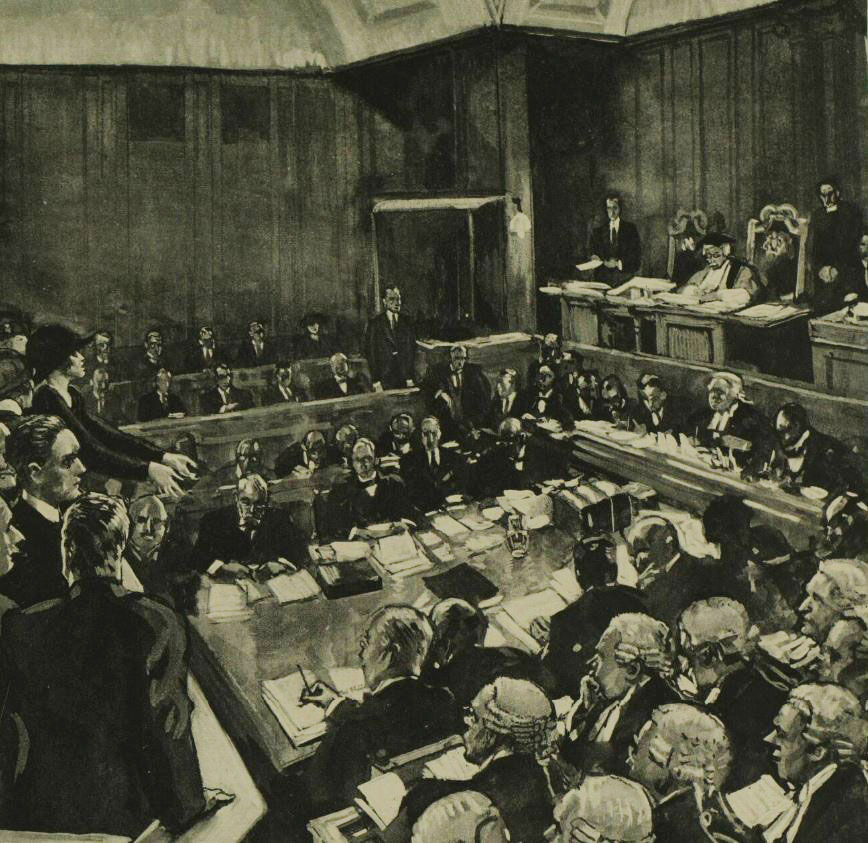
The piece then shifts to cover what happened on that tragic October night:
What happened on the fatal night can only be conjectured. What is more natural than that the two men should have quarrelled, that words should have led to blows, and that in the height of temper Bywaters fatally stabbed Thompson? That seems the common sense explanation. If so the murder was certainly not premeditated and Mrs. Thompson could not have been an accessory. But for the unfortunate fact that Bywaters, like most seafaring men, carried a knife the tragedy would probably have never taken place.
But both Frederick Bywaters and Edith Thompson were found guilty of the crime of murder, and sentenced to hang. However, there was public outcry when this sentence was handed down, the editor of the South London Observer also hoping that the lives of the two young lovers ‘be spared.’
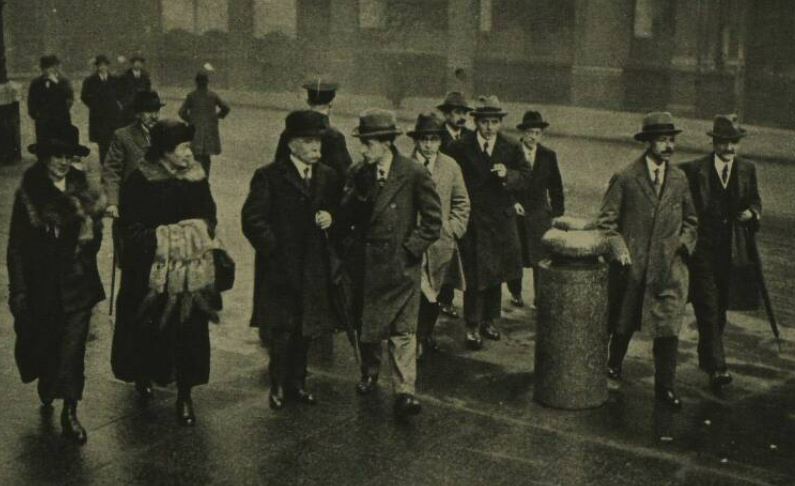
And in spite of such sympathy, there was an ongoing macabre interest in the case, as the South London Observer outlined on 30 December 1922:
Inquiries by visitors for models of the two chief figures in the Ilford tragedy have been so numerous that Madame Tussaud’s have felt constrained to add them to their exhibition and they have just been installed. The new models stand side by side, exactly as the prisoners appeared at the Old Bailey – Mrs. Thompson wearing a fur coat and black velour hat with feathers, and Bywaters a blue serge jacket suit.
It is estimated that one million people signed a petition for Edith Thompson to be spared the hangman’s noose, outlining the public’s squeamishness over the death penalty for women. Indeed, Frederick Bywaters repeatedly claimed that she was innocent, and the murder was his doing alone. But any appeal fell on deaf ears, and the pair were executed, in separate prisons, at the same time, on 9 January 1923.
New Titles
| Title | Years Added |
| Croydon Express | 1878-1895, 1898, 1900-1911, 1913-1916 |
| Daily Post (Wales) | 1982-1984 |
| Greenford & Northolt Gazette | 1997 |
| South London Observer | 1895, 1901-1962 |
| Southwark and Bermondsey Recorder | 1868-1884, 1903-1920 |
Updated Titles
This week we have updated 68 of our existing titles.
You can learn more about each of the titles we add to every week by clicking on their names. On each paper’s title page, you can read a FREE sample issue, learn more about our current holdings, and our plans for digitisation.
You can keep up to date with all the latest additions by visiting the recently added page. You can even look ahead to see what we’re going to add tomorrow.


